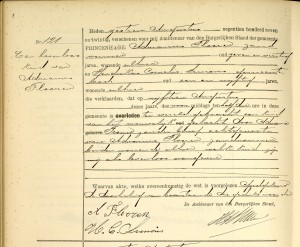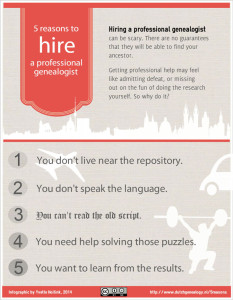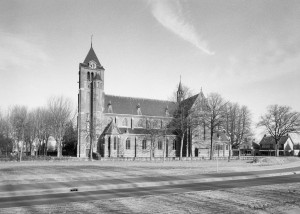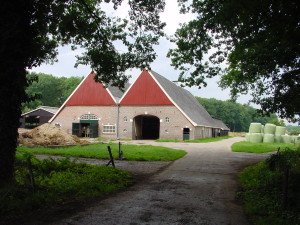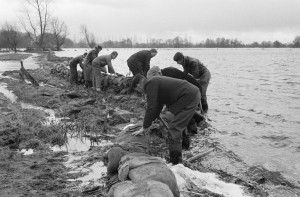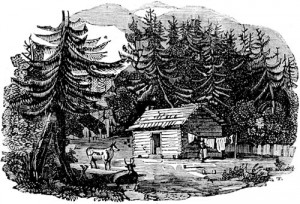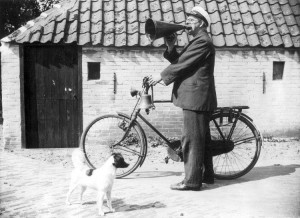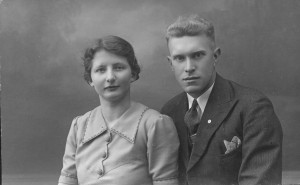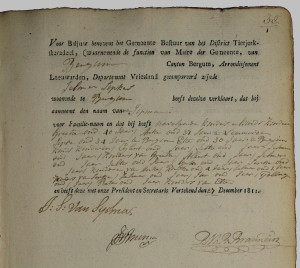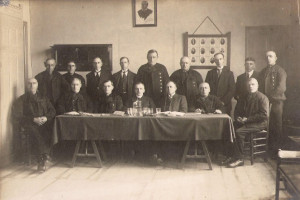Levenloos literally means "lifeless" and is used to refer to stillborn children. In death records, you will often read "levenloze dochter" [stillborn daughter], "levenloze zoon" [stillborn son] or "levenloos kind" [stillborn child]. Since 1811, death records were created for stillborn children (children born after a pregnancy of more than six months). They did not have birth records, as these were reserved for children that were born alive. If a child died before the birth record was created, … [Read more...]
Archives for March 2014
Five reasons to hire a professional genealogist
Most of my clients hire me for a combination of these five reasons. Why would you consider hiring a professional genealogist? Or what is holding you back? If you have ever hired a professional genealogist, what was your main reason for doing so? (Feel free to reuse this image. A link back to this blog post is appreciated.) … [Read more...]
Quick tip: read ‘Holland’ instead of ‘Reusel-De Mierden’
Do you have ancestors from Reusel-De Mierden, Noord-Brabant? Chances are, they are not from this place but the place name was introduced by mistaken when software tried to resolve the place name 'Holland'. Read Was your ancestor born in Reusel-De Mierden, Noord-Brabant? Guess again! for more information. … [Read more...]
Dutch term – Parenteel
Parenteel is the Dutch word for an overview of descendants in the male and female lines. A parenteel can be represented in a narrative form or in a chart. It can include people with many different last names, as the descendants of daughters and their spouses are traced too. Some Dutch genealogists publish parentelen online, so a search for the term parenteel combined with a surname or place name of interest may lead you to these publications. Example: Parenteel of Egbert Mierdinck The largest … [Read more...]
Column – Thought process
Shortly after I started doing genealogy, a fellow researcher urged me to always document my sources. "You think now that you will remember where you've found everything, but there comes a time that you will have gathered so much that you won't remember the source." Wise words that I took to heart and that have proved to be invaluable. … [Read more...]
Quick tip: Mind your immigrant ancestor’s neighbors
When you're trying to find the place of origin of your Dutch immigrant ancestor, be sure to check his neighbors too. Did any of them come from the Netherlands? On websites that allow you to search census records, like Ancestry.com or Ancestry.co.uk, you can often search for all people born in the Netherlands who lived in a certain place, regardless of their names. This should tell you who the Dutch immigrants in that community were. Your ancestor may be hard to trace but his neighbor may not … [Read more...]
Dutch term – ambtenaar
An ambtenaar is a civil servant or government employee. In civil registration records, you will often see an ambtenaar van de burgerlijke stand (clerk of the civil registration) officiating the marriage or registering the birth or death. During your research you can encounter ambtenaren in two ways: your ancestors may have been ambtenaren themselves but they also would have dealt with ambtenaren like clerks, teachers, soldiers, police officers or town criers in their every-day lives. The … [Read more...]
Tribute to Henk Hoitink (1914-2000)
A hundred years ago today, a boy was born in Winterswijk, Gelderland. His parents, Gerrit Jan Hoitink and Willemina Berendina van Nijkerken, had just been married the year before. They named their son Hendrik, after Gerrit Jan's father, as was the local tradition. Informally, they called him Henk. Henk Hoitink was my grandfather. Henk grew up in the village of Winterswijk, where his father worked for the railroad as a shunter. Winterswijk was an important railroad hub in those days, … [Read more...]
Quick tip: find the origin of your name in name taking records
If your family is from the northern provinces, or Jewish, you may find them in name taking records. When the civil registration was introduced, people who did not have a last name yet were required to record their last name. In such cases, the name taking record is often the earliest record you will find for your name. Sometimes, clues about the origin of your name can be found in the name taking records. For example, a carpenter may had called himself Houtsma (hout = wood), an ancestor … [Read more...]
Dutch term – kerkenraad
The word kerkenraad or kerkeraad means church council that was responsible for the administration of the church. The minutes of the church council can be a rich source of information about members of the church. Read more about using church council minutes for your research. … [Read more...]
